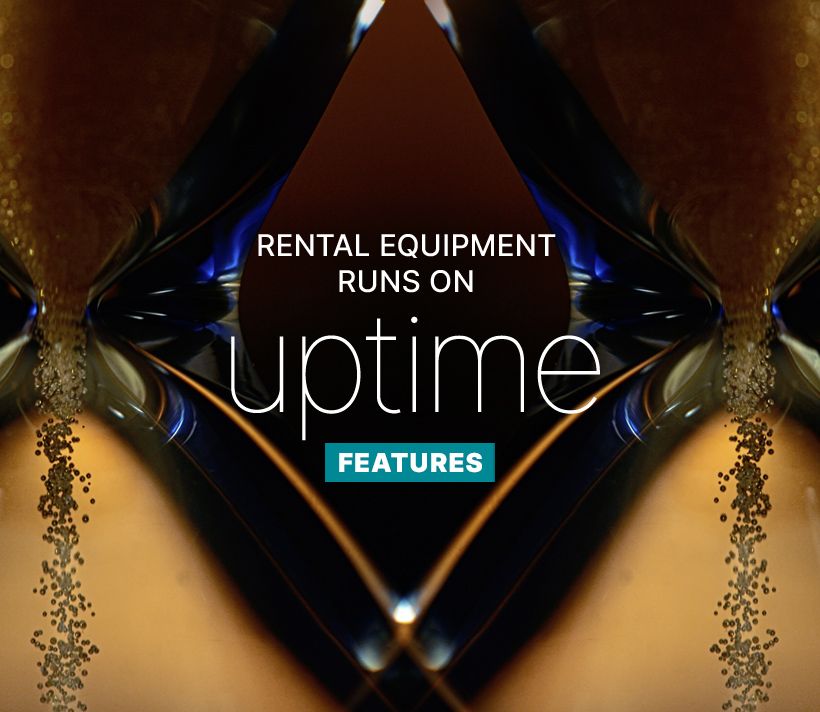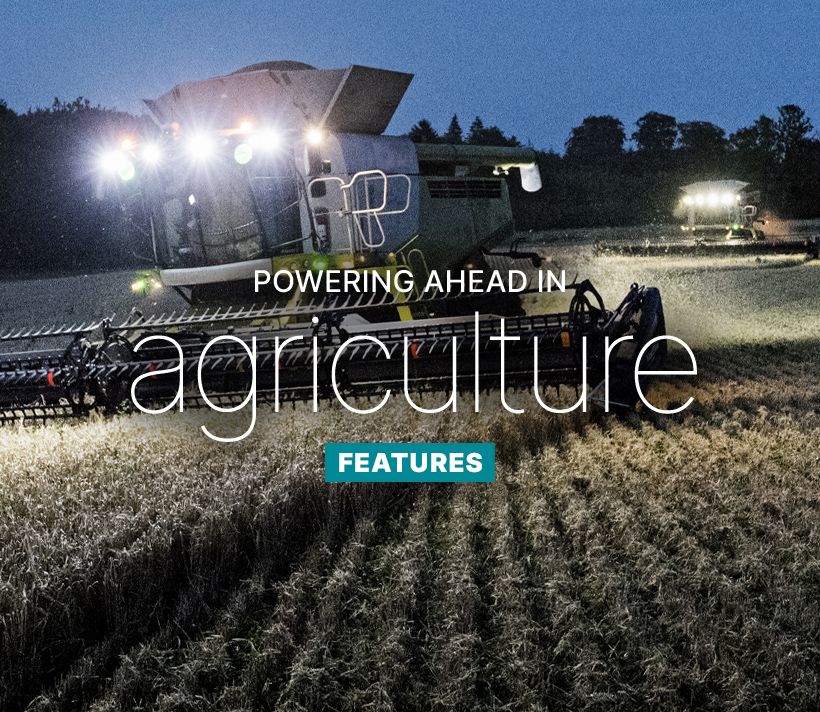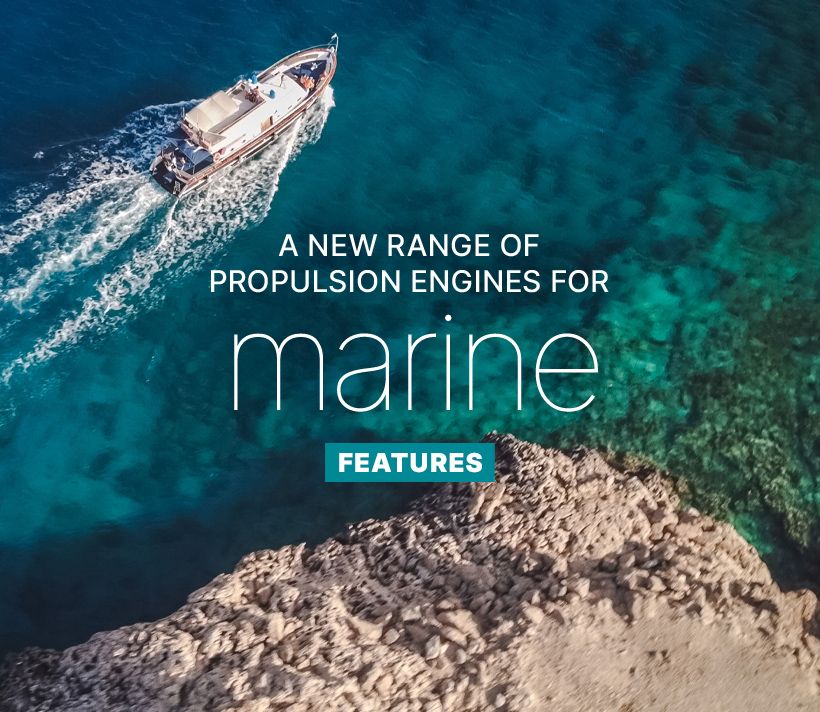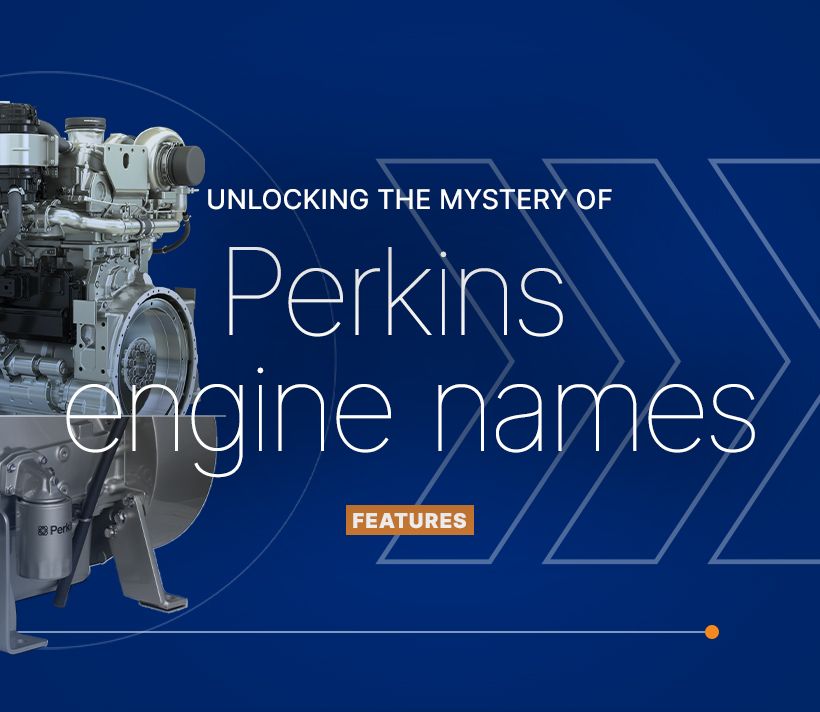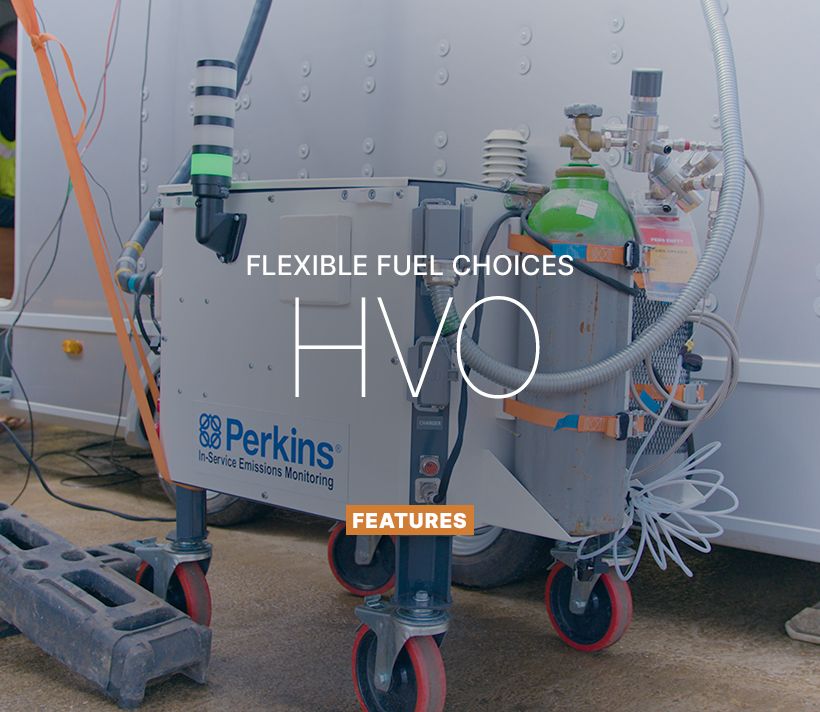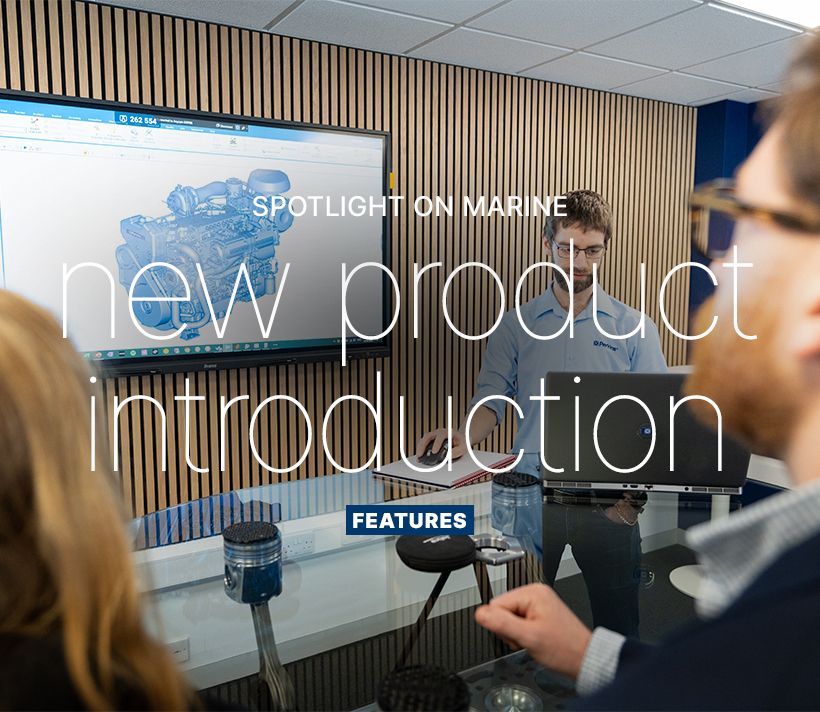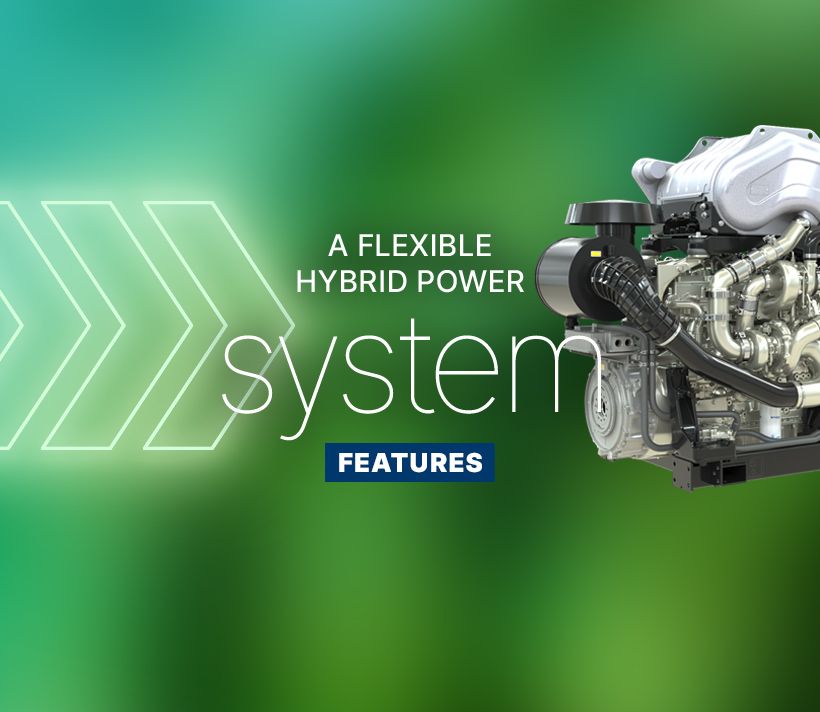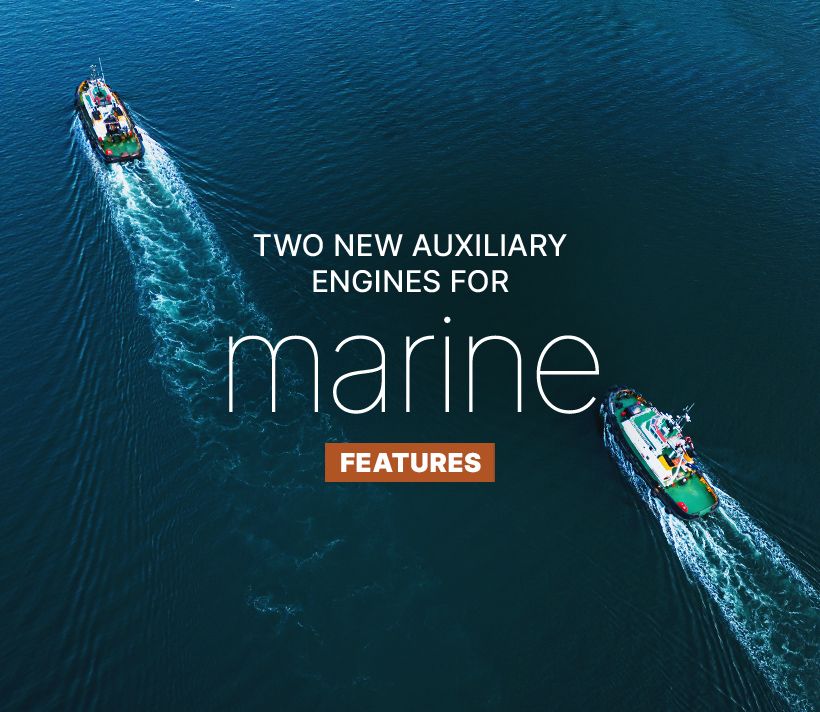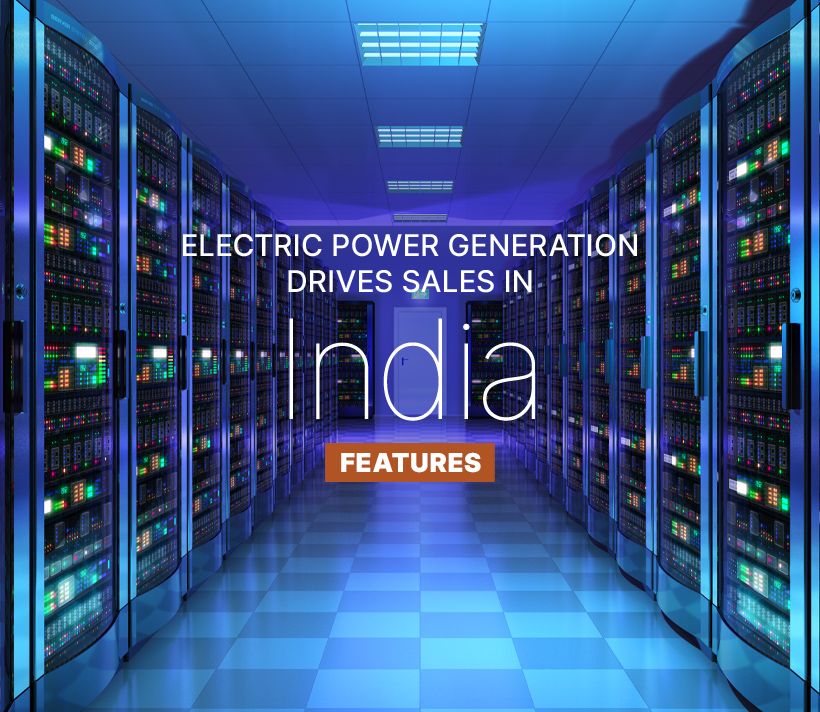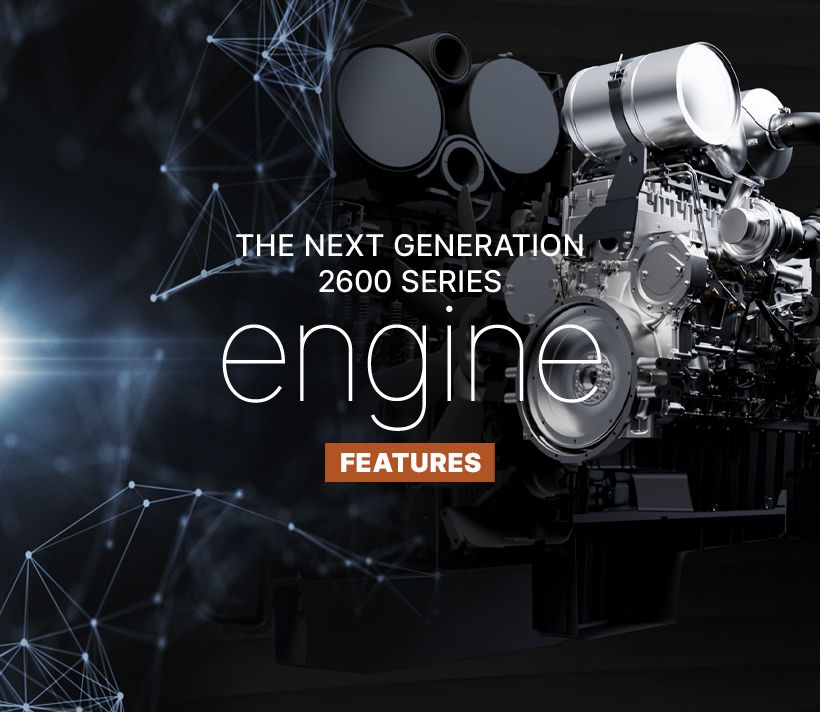Paul: The energy transition presents a tremendous opportunity for off-highway equipment manufacturers to make a global impact in reducing greenhouse gas emissions while helping construction, mining, agriculture and other industries achieve improvements in productivity, efficiency and safety.
Perkins is continually expanding its capabilities to help original equipment manufacturers (OEMs) research, develop and integrate new powertrain technologies that help accelerate the delivery of new equipment to market.
While many off-highway solutions supporting the energy transition focus on large OEMs with extensive research and development capabilities, the success of decarbonisation initiatives also relies on support for OEMs with more limited resources.
The latest example of this support is Project Coeus, a collaboration of Perkins with Equipmake and Loughborough University’s Mechanical, Electrical and Manufacturing Engineering School to develop and produce an advanced multi-fuel, ‘drop-in’ hybrid integrated power unit.
The development will enable a wide range of off-highway industrial OEMs – both large scale and those with limited resources – to directly replace this power solution’s diesel equivalent in terms of power density and response.
The programme shows how Perkins can accelerate OEMs’ transitions to lower-carbon intensity fuels such as hydrogen, methanol, bio-ethanol and other eFuels while harnessing electrification. The design will support several fuel types, with the initial demonstration utilising hydrogen.
Perkins will leverage its expertise in advanced controls to develop a self-optimising power unit with the system intelligence needed to automatically adapt to the performance differences of various fuels, eliminating the need for re-engineering, recalibration and retuning.
Paul: Supported by UK Government funding of £11.14M through the Advanced Propulsion Centre UK (APC), Project Coeus will develop a 7-litre Perkins® 1200 Series industrial power unit with hybrid-electric components and advanced controls to enable operation on hydrogen fuel.
The 7-litre hybrid powertrain system will be configured with factory-installed ECM sensors, radiators, cooling packs, filtration, control systems and aftertreatment hardware in a complete, integrated package that minimises OEM development timelines and reduces engineering and assembly costs.
Now underway, the three-and-a-half-year project will be led by Perkins’ global engineering headquarters in Peterborough, UK, with Equipmake providing epowertrain technology and Loughborough University supporting through advanced engine analytics and emissions control.
Paul: Named after the Greek Titan god of resolve and intelligence, Project Coeus will see the design, development and manufacture of a multi-fuel ‘drop-in’ hybrid powertrain, which directly replaces existing diesel solutions in off-highway machines and will support the UK and global off-highway industries in delivering reduced greenhouse gas emissions.
The project is supported by funding through the APC, which leverages research and engagement to provide insight that drives early-stage research and development, funding that takes proof of concepts to marketability, and strategic insight that drives the industrialisation of the best technology types to benefit the UK.
Paul: Project Coeus is the latest example of Perkins jumpstarting OEM development programmes and shortening equipment production timelines.
Perkins already offers a full range of comprehensive integration, mechanical, electrical, software and controls engineering capabilities through its Customer Machine Engineering Team (CMET). Designed to help customers continuously explore new ways to optimise their equipment’s performance, efficiency, and power density using conventional, hybrid and next-generation energy sources, Perkins’ offerings are helping deliver smarter solutions to advance sustainable power.
The Perkins CMET can help OEMs that are evaluating diverse powertrain alternatives across numerous dimensions. The team applies deep engineering expertise, wide-ranging market sector knowledge, and a power source-agnostic approach to help product teams select tailored solutions that meet their specific requirements and deliver the optimal balance of owning and operating costs they need.
Perkins engineers provide machine operating expertise on more than 5,000 different off-highway applications by leveraging machine development competencies built over the past decade. Perkins access to world-class engineering resources and state-of-the-art testing facilities has provided millions of hours of support to customers.
The CMET steers projects from concepts to prototypes to functional, fully tested machines by evaluating system requirements; optimising system architectures; managing system controls development, calibration, and verification; and performing final system validation.
Perkins engineers manage the design, test, and machine sign-off process, providing OEMs with a 3D model design and a machine ready for the next stage of manufacturers’ development process while protecting valuable intellectual property by keeping confidential data secure and safe.
The team helps equipment manufacturers thoroughly evaluate considerations such as power needs, application types, duty cycles, operating environments, run time, fuel availability, emissions standards, decarbonisation initiatives, resale value, own-versus-rent approaches, maintenance and many other factors.
Perkins serves as an efficient single source for configuring and supplying all components needed for integrated powertrain systems, ranging from engines, transmissions, electronics, and self-calibrating controls for conventional solutions to batteries, inverters, motors, motor-generators, cooling systems, software, and other critical elements for new-energy configurations.
Paul: Perkins support for OEMs through the energy transition reflects a new brand strategy and a renewed sense of purpose rooted in helping customers build and power a better, more sustainable world.
A new Perkins tagline – “Together, we power ahead.”– a bolder visual identity and a revitalised communications approach are based on the adventurous spirit of founder Frank Perkins and Perkins’ heritage of exploration. This all-encompassing campaign helps to better inform and engage customers as they work to overcome challenges and progress toward their ambitious power and sustainability goals.
Perkins demonstrates this brand promise by continuously developing and optimising a large, fast-growing portfolio of advanced power product and service solutions designed to help customers manage the energy transition to a lower-carbon future.
Last year, the company introduced 48-, 300- and 600-volt lithium-ion battery solutions with modular designs and factory-installed telematics that Perkins is developing to optimise performance and packaging in numerous next-generation off-highway applications.
Perkins offers EU Stage V and U.S. EPA Tier 4 Final industrial diesel engines and industrial open power units (IOPU) that are available today to help OEMs reduce greenhouse gas emissions from their machines.
Without requiring modification, these engines are capable of using a wide range of lower-carbon intensity drop-in fuels such as hydrotreated vegetable oil (HVO) and biodiesel. Fuels must meet the specifications and characteristics described on the Perkins website in order to be used in Perkins engines and reduce the risk of downtime.
For many years, Perkins has supplied highly configurable integrated, end-to-end diesel-electric hybrid powertrains suitable for a wide range of off-highway applications.
Perkins also provides connectivity solutions with hardware for reading important engine data, displayed to the customer as timely insights. Additionally its leading aftermarket capabilities promote sustainability through improved fuel efficiency and prolonged machine life cycles, ranging from Perkins® Hypercare packages and overhaul kits to full replacement engine solutions.
In the incredibly diverse off-highway industry, there is no one-size-fits-all solution for the energy transition. Perkins is strategically positioned to customise solutions and resources to meet OEMs and equipment buyers wherever they are on their journeys toward a lower carbon future.
For more information, visit perkins.com/advancedpower.
Perkins’ collaboration with Trackunit, delivering real-time insights to customers, increasing productivity in the field.
Read moreFor industrial equipment rental, excellent technical support and parts availability is a necessity.
Read moreTo mark Agritechnica's 'Celebrate Farming Day', Powernews spoke to Andy Curtis, Customer Solutions Director at Perkins.
Read moreClever configuration options fulfil the current and future requirements of the industry.
Read moreWho keeps the lights on when the grid can’t? The power generation sector, of course. In the UK, its interests are represented by The Association of Manufacturers and suppliers of Power generating Systems (AMPS) – whose new director general, Alan Beech, came into post earlier this year.
Learn MoreHave you ever looked at the name of a Perkins engine and wondered what all those numbers and letters actually mean? If so, you’re certainly not alone. But rest assured the nomenclature is anything but random.
Read moreOne alternative fuel option we’ve researched heavily and have accommodated in our diesel engines for more than a decade is hydrotreated vegetable oil (HVO) – which must meet the EN 5940 standard – with the Perkins® 400 to 5000 Series able to use up to 100% HVO.
Read moreIn part two of our spotlight on marine we talk with Ben Lewis commercial manager, Dave Wood, application and tech support team lead and Stuart Phillipson, marine application and tech support to find out more about what’s in development for the marine range.
Read moreWhy stick to one fuel, when you can have a configurable power system?
Read moreMore than just a curiosity, they offer us different routes to future food security.
Read moreTwo new auxiliary engines powering the marine sector.
Read moreDependable electric power generation drives sales of Perkins® 4000 Series in India.
Read morePerkins launches the next generation 2600 Series engine.
Read more
